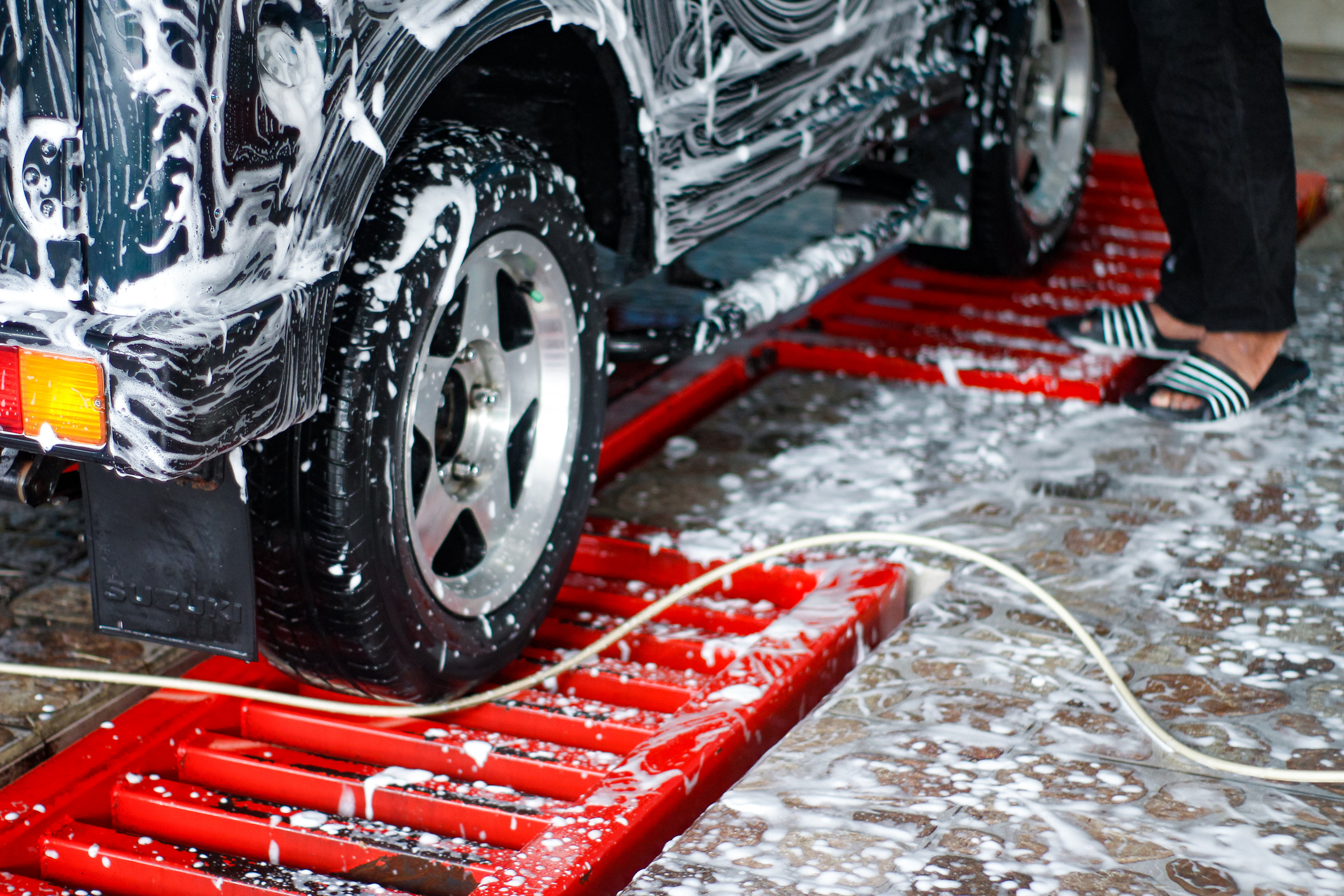Car Washing Impacts on the Environment
Untreated runoff from car washes can be highly toxic to aquatic life and is one of the reasons that streams are not as healthy as they should be. Unlike the sanitary sewer systems, water that runs into the storm drains goes directly into lakes, streams, and wetlands with little or no treatment.
Federal Way City code states "It is unlawful for any person to discharge contaminants into surface water, stormwater, groundwater, or the Puget Sound. Contaminants include, but are not limited to, the following: (15) Soaps, detergents, or ammonia"
Chapter 16.50 DISCHARGES INTO FEDERAL WAY WATERS AND STORM DRAINAGE SYSTEMS
Here's what you can do to make your car wash "salmon-friendly."
1. Take your car to a commercial car wash. Commercial car washes are required by law to divert their water into the sanitary sewer, where it gets cleaned at a treatment facility.
2. If you do wash your car at home, do it on a grassy surface, where the soapy water can soak in, rather than on pavement, where it will runoff into a storm drain. Empty your dirty wash buckets into a sink or toilet, rather than into the storm drain.
What about car wash fundraisers?
Realizing that car washes are an important fundraising tool for many groups in the community, the City of Federal Way recommends using car wash voucher programs, rather than a car wash event. This helps to ensure that only rain goes down the drain, and that your proceeds aren't lost to fees associated with City code violation.
One local partner is Brown Bear Car Wash, which offers a percentage of proceeds for each car wash voucher sold. More information can be found at Car Wash Fundraiser – Brown Bear Car Wash. If you have any questions or concerns, reach out to a Water Quality Specialist at SWM@federalwaywa.gov.
How do I report pollution in the storm drains?
If you see activity leading to pollution in the local storm drains, please report it on Eyes on Federal Way and it will be sent to the appropriate City department for correction.

